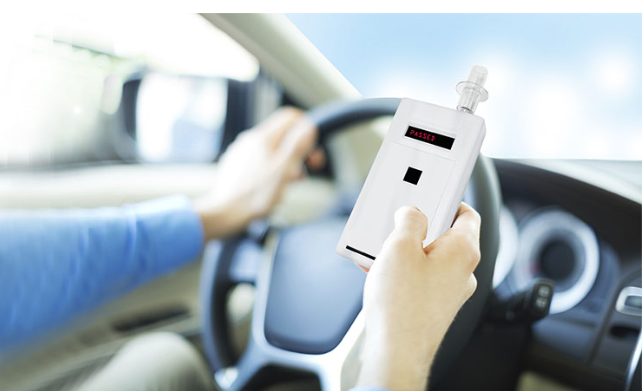Advanced Technology
Imagine a world without drunk driving...
Thousands of families would never have to experience the call or knock on the door from law enforcement telling them that their loved one isn’t coming home…
Hundred of thousands of people would never be injured…
And our country would save $132 billion of costs each year.

Cars are becoming smarter and safer
Working with the government, traffic safety advocates and members of the automotive industry, MADD is a leader and supporter of developing advanced technology that can save lives. Now we need it to be readily available in vehicles.
We support vehicle-based interventions and advanced technology as part of our Campaign to Eliminate Drunk Driving.
We're working with our partners, Congress, auto makers and the National Highway Safety Administration to make lifesaving technology standard in all new vehicles.
From driver monitoring systems that can determine whether a driver can safely operate a vehicle and that prove a driver is sober before they hit the road to self-driving cars, we see a world where tomorrow's cars are the beginning of the end of drunk driving.
To make sure there is a future with No More Victims We also need help from you.
This is one of the best opportunities we have to protect our families and save lives. Please join with us by supporting and advocating for technology that can eliminate drunk and drugged driving for good.
Driver Monitoring systems
Stopping Tragedies before
They Happen
Working with the government, traffic safety advocates and members of the automotive industry, MADD is a leader and supporter of developing advanced technology that can save lives. Now we need it to be readily available in vehicles.

Using Technology to detect impaired driver
Impaired drivers exhibit physical characteristics that can be detected by technology that exists today or is in development.
For example, touch-based systems in the car read a person’s blood alcohol connection (BAC) through their fingertips, while air-sampling systems can test and isolate just the air exhaled by the driver. If the alcohol level is too high, the driver is alerted, and the car won’t move.
MADD believes technology is critical to eliminating impaired driving
and we've challenged the auto industy to move quickly to deploy the drunk driving prevention system on all new vehicles to save lives.
Autonomous Vehicles
Getting EVERYONE Home Safe
Self driving cars, known as autonomous vehicles, have the
potentials to end drunk driving and drunk driving fatalities.
MADD Strongly supports the safe development of autonomous vehicles and works to build public acceptance for the adoption of this life saving technology.
Four key principles
Support federal regulatory framework.
It is critical that the Congress and/or DOT/NHTSA provide the necessary guidance and regulations to the autonomous vehicle community in order to allow a national roll-out of this technology. We believe the DOT/NHTSA Autonomous Vehicle Policy issued in 2016 is a good beginning for providing safety guidance to those companies developing Highly Automated Vehicles.
Support existing state regulatory system.
The state role in autonomous vehicles is to continue doing what they do for conventional vehicles today. This includes titling, registration, insurance requirements, etc. States should not regulate the safety of autonomous vehicles because they do not have the technical expertise to do so and their involvement could hinder the technological progress in the deployment of this life-saving technology.
Support for level four and five autonomous technologies.
For MADD’s purposes, it is important that vehicles achieve level four and level five automation (i.e., vehicles that do not require a human driver in at least certain environments or under certain conditions). Drunk driving is arguably the biggest killer on our roadways. Alcohol and drug impairment have lasting effects, so it is imperative for maximum safety that the car be able to completely take control and remove the driver from driving.
Support for evaluating the technology as it evolves.
The Autonomous Vehicle Policy includes provisions for recording and sharing information on system capabilities and data on events, incidents and crashes. These data can be used to enhance the safety benefits of the technology and should be standardized, anonymous, absent of propriety information, and made available not only to the federal government but also to states, researchers, and the public.
Ignition Interlock
Putting a Stop to Drunk Driving Repeat Offenders
Three out of four drunk offenders continue to drive after their license has been suspended, threatening the safety of you and your loved ones.
MADD Strongly supports the safe development of autonomous vehicles and works to build public acceptance for the adoption of this life saving technology.
An avarage drunk driver
will drive drunk
80 times before a first arrest
Your family shares
the roadways with
2 million drunk drivers who have had three or more prior convictions
Repeat Offenders
account for about 1/3 of the
11,000 deaths and 315,000 injuries each year

An ignition interlock is a device about the size of a cell phone that is wired into the ignition system of a vehicle. A convicted drunk driver must blow into the device in order to start their vehicle. If they have a measurable amount of alcohol in their system, the vehicle will not start. It’s simple and economical way to make sure that offenders can drive to and from work, but that they can’t drive drunk.
Ignition Interlocks make our roads and country safer. States requiring ignition interlock devices for first time offenders have shown a decrease in deaths caused by drunk driving.

